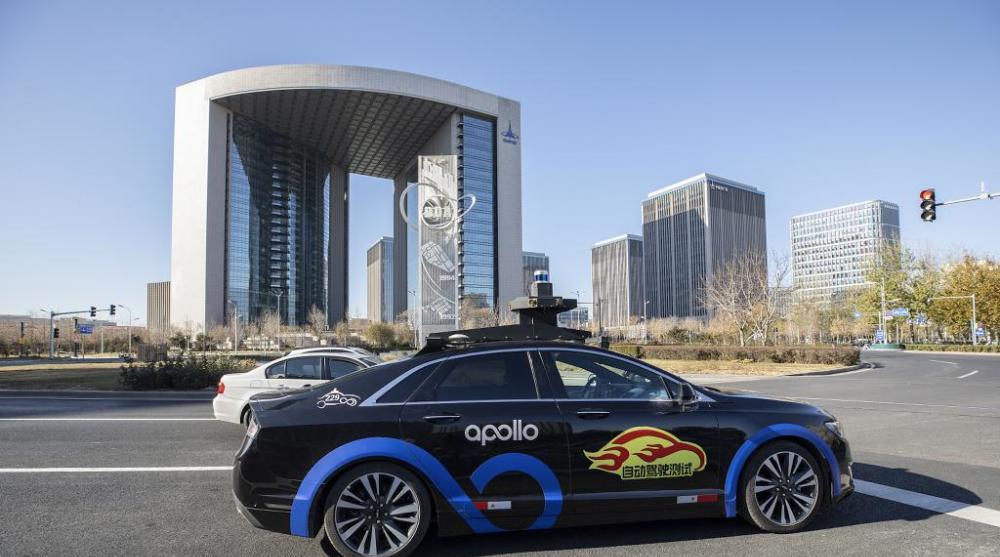
Calling a driverless taxi on the street, chatting with friends in the car, watching TV, eating snacks, without any action, waiting for the vehicle to drive to its destination, this plot in the science fiction movie seems to be getting closer and closer to real life.
As one of the main application scenarios of autonomous driving technology, self-driving taxis (Robotaxi) have been in the main research and development directions of car companies, Internet companies and start-ups, from the initial theoretical research to access vehicles to small-scale testing, and now, the large-scale application of autonomous driving has broken the ice.
Xiaoma Zhixing, an autonomous driving company, recently announced that it won the bid for the 2022 taxi capacity index in Nansha District, Guangzhou, which is the first taxi business license issued to an autonomous driving enterprise in China.
It is expected that from May, 100 self-driving taxis launched by Xiaoma Zhixing will start paid operations in about 800 square kilometers of Nansha and gradually expand services to other parts of Guangzhou as the business is gradually expanded.
In operation, passengers can use the service and complete the payment by using the APP of Xiaoma Zhixing, and the charging standard is in accordance with the unified pricing standard of Guangzhou Taxi.
Mo Luyi, vice president of Pony Wise Bank, expects that taxi services will bring millions of yuan in revenue to Pony Wise Bank in the early stage of operation.
Competing with conventional taxis in the same area and with uniform pricing is a new breakthrough in the commercialization of the entire Robotaxi field, and Baidu has previously obtained similar operating qualifications.
In November last year, Baidu opened the first pilot commercialization of autonomous travel services in China in Yizhuang, Beijing, allowing self-driving taxis to charge on the road and can be priced market-oriented, and Baidu and Xiaoma Zhixing are the first batch of enterprises to be allowed to carry out pilot services.
In addition to Beijing, Baidu's Radish Run has also opened normal operations in Shanghai, Chongqing and Changsha.
The same is true of Pony Zhixing, as early as 2018, Xiaoma Zhixing began to launch the first domestic Robotaxi normalized trial operation service in Nansha, Guangzhou. Since then, it has opened services to the public in Beijing, Shanghai and Fremont.
According to media reports, by the end of 2021, Xiaoma Zhixing's test mileage in Guangzhou ranked first in the city, contributing more than half of the test mileage of autonomous driving in Guangzhou. Among them, the proportion of automatic driving mode is as high as 98%, exceeding the industry average of 70.6%.
Therefore, it can be said that It is reasonable and natural for Xiaoma Zhixing to obtain the first taxi business license for an autonomous driving enterprise in Nansha, Guangzhou.
It is worth noting that at present, the self-driving taxis operated by enterprises for the public will still be equipped with safety officers in the driver's seat to take over the vehicle in time on complex roads or in case of emergencies to prevent accidents.
Before obtaining commercial operation licenses, there are two main ways for autonomous driving companies to provide Robotaxi services, the first is to trial operation in a specific ODD area, which is like a "vacuum area", where road characteristics, environment, time and other operating conditions have been set in advance, so the situation that the vehicle encounters when driving is basically zero, which also means that there is a big difference from the real road conditions.
The second is to partner with taxi or ride-hailing platforms to provide consumers with the Robotaxi service option in some permitted areas, which is an additional feature of shared mobility.
In both ways, Robotaxi operates conditionally and is treated in a special state.
The taxi business license obtained by Xiaoma Zhixing this time means that AI drivers and human drivers will be treated equally, although safety officers are still needed, but for autonomous driving technology, this license is undoubtedly an important step towards commercial and routine operation.
In addition to self-driving companies and Internet companies, new car companies are also eyeing the big cake of Robotaxi.
Market research firm IHS Markit expects the shared mobility market to reach 862 billion yuan in 2025 and 2.25 trillion yuan in 2030, while Robotaxi will account for more than half of the shared mobility market and is expected to exceed 1.3 trillion yuan. In other words, the future of the travel market will be dominated by unmanned vehicle travel service scenarios.
In the trillion-dollar market, how can new forces with driving data, vehicle production capacity and continuous investment in the research and development of autonomous driving technology be missed?
The CEO of Xiaopeng Automobile has publicly stated that it will launch the Robotaxi business in 2022 to accelerate the commercialization of intelligent driving technology. In February this year, Xiaopeng set up a new autonomous driving company, the legal representative is Xiaopeng co-founder and president Xia Heng, which is seen by the outside world as a signal to accelerate to the Robotaxi track.
Musk has also recently drawn a "big pie", saying that he is developing a Robotaxi vehicle without steering wheels and pedals, which is expected to be mass-produced in 2024.
As far as the current situation is concerned, self-driving companies such as Xiaoma Zhixing and Wenyuan Zhixing, as well as Baidu and Didi, are temporarily running ahead of the new power car companies.
Produced by ZAKER News
Wen / Bao Xingwa Intern Zhang Ruishan
Editor / Zeng Xiantian